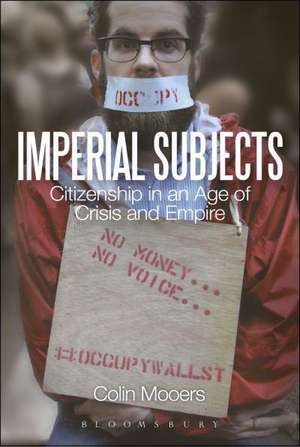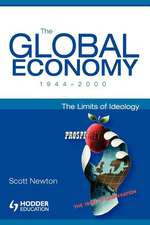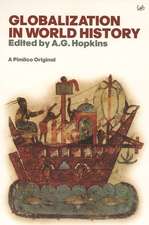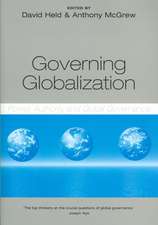Imperial Subjects: Citizenship in an Age of Crisis and Empire
Autor Dr. Colin Mooersen Limba Engleză Paperback – 22 oct 2014
| Toate formatele și edițiile | Preț | Express |
|---|---|---|
| Paperback (1) | 190.06 lei 43-57 zile | |
| Bloomsbury Publishing – 22 oct 2014 | 190.06 lei 43-57 zile | |
| Hardback (1) | 712.49 lei 43-57 zile | |
| Bloomsbury Publishing – 22 oct 2014 | 712.49 lei 43-57 zile |
Preț: 190.06 lei
Preț vechi: 248.67 lei
-24% Nou
Puncte Express: 285
Preț estimativ în valută:
36.38€ • 39.53$ • 30.58£
36.38€ • 39.53$ • 30.58£
Carte tipărită la comandă
Livrare economică 21 aprilie-05 mai
Preluare comenzi: 021 569.72.76
Specificații
ISBN-13: 9781441192516
ISBN-10: 1441192514
Pagini: 168
Dimensiuni: 152 x 229 x 13 mm
Greutate: 0.27 kg
Ediția:New.
Editura: Bloomsbury Publishing
Colecția Bloomsbury Academic
Locul publicării:New York, United States
ISBN-10: 1441192514
Pagini: 168
Dimensiuni: 152 x 229 x 13 mm
Greutate: 0.27 kg
Ediția:New.
Editura: Bloomsbury Publishing
Colecția Bloomsbury Academic
Locul publicării:New York, United States
Caracteristici
Brings
together
neoliberal
citizenship,
new
imperialism,
and
"financial
subjects"
into
one
unique
theoretical
analysis
Notă biografică
Colin
Mooersis
a
Professor
of
Politics
and
Cultural
Theory
at
Ryerson
University,
Toronto,
Canada.
He
served
as
Chair
of
the
Department
of
Politics
and
Public
Administration
from
2001-2006
and
as
Director
of
the
York-Ryerson
Joint
Graduate
Program
in
Communication
and
Culture
from
2008-2011.
Cuprins
AcknowledgementsIntroduction:Capitalism,
Citizenship
and
EmpireChapter
One:Birth
of
the
Liberal
Subject:
Commodities,
Money
and
CitizenshipChapter
Two:States
of
Insecurity:
From
Social
Rights
to
Social
DebtsChapter
Three:Risk-Management
War
and
Humanitarian
ImperialismChapter
Four:States
of
Security:
From
Social
Security
to
the
Security
StateChapter
Five:Contesting
Empire:
Beyond
the
Citizenship
IllusionBibliographyIndex
Recenzii
A
bold
effort
to
cognitively
map
the
totalizing
power
of
capitalist
social
relations
in
the
contemporary
international
conjuncture
Colin Mooers'sImperial Subjects: Citizenship in an Age of Crisis and Empireadvances the Marxian understanding of citizenship beyond the usual contrast of legal equality and substantive inequality. Mooers demonstrates not only how capitalism creates the basis for juridical equality among citizens, but constantly creates and recreates categories of non-citizens subject to varied forms of legal coercion. He applies this framework to a provocative analysis of citizenship in the current era of neo-liberal capitalism.Imperial Subjectsis a major contribution.
This book is a powerful and penetrating analysis of the legal subject in contemporary global capitalism. Demonstrating a remarkable breadth, Mooers effortlessly charts a course through the complex debates around commodity fetishism, value forms, state theory and neoliberal imperialism. Always attentive to moving beyond Western-centric frameworks, the book provides a devastating critique of liberal notions of citizenship and a profound insight into the ways that legal subjectivities under capitalism are essential to ongoing imperial domination. Highly recommended!
In recent years, and especially since the 2008 financial crisis, there has been a striking shift in public discourse about the fundamental flaws of capitalism. But, while much has been said about such effects as, above all, rising inequality, even the most widely read and celebrated discussions have barely scratched the surface. Colin Mooers has taken a huge step forward with his innovative, lucidly argued and accessible analysis of transformations in the global market, its complex interactions with a new imperialism and a new form of neoliberal citizenship, which should change the conversation--both scholarly and popular--in truly fundamental ways."
Mooers' ability to capture and synthesize insights that show political, ideological and existential contradictions in his important revisited critique of capital is the greatest contribution of this book, which I highly recommend to anyone interested in ideas of national or global citizenship.
Colin Mooers'sImperial Subjects: Citizenship in an Age of Crisis and Empireadvances the Marxian understanding of citizenship beyond the usual contrast of legal equality and substantive inequality. Mooers demonstrates not only how capitalism creates the basis for juridical equality among citizens, but constantly creates and recreates categories of non-citizens subject to varied forms of legal coercion. He applies this framework to a provocative analysis of citizenship in the current era of neo-liberal capitalism.Imperial Subjectsis a major contribution.
This book is a powerful and penetrating analysis of the legal subject in contemporary global capitalism. Demonstrating a remarkable breadth, Mooers effortlessly charts a course through the complex debates around commodity fetishism, value forms, state theory and neoliberal imperialism. Always attentive to moving beyond Western-centric frameworks, the book provides a devastating critique of liberal notions of citizenship and a profound insight into the ways that legal subjectivities under capitalism are essential to ongoing imperial domination. Highly recommended!
In recent years, and especially since the 2008 financial crisis, there has been a striking shift in public discourse about the fundamental flaws of capitalism. But, while much has been said about such effects as, above all, rising inequality, even the most widely read and celebrated discussions have barely scratched the surface. Colin Mooers has taken a huge step forward with his innovative, lucidly argued and accessible analysis of transformations in the global market, its complex interactions with a new imperialism and a new form of neoliberal citizenship, which should change the conversation--both scholarly and popular--in truly fundamental ways."
Mooers' ability to capture and synthesize insights that show political, ideological and existential contradictions in his important revisited critique of capital is the greatest contribution of this book, which I highly recommend to anyone interested in ideas of national or global citizenship.










